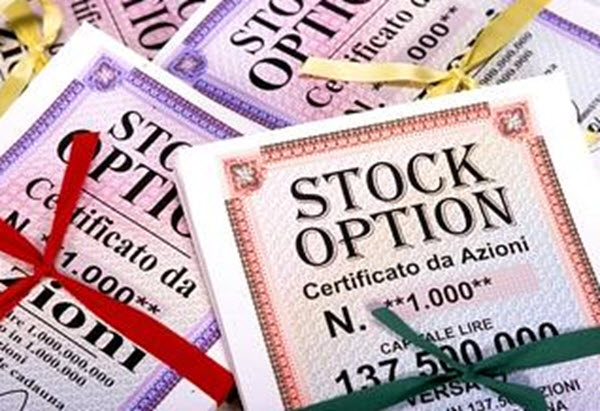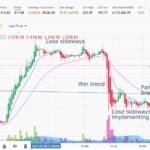In a simple term, an Option is a contract which you can buy from someone or sell to someone. It is in your decision or responsibilities depend on whether you are the one buying or selling. Now before getting into details, it is worthwhile to understand some important characteristics of an option contract and then we’ll build slowly on an example. The Option’s characteristics are as follows.
- An option contract is based on some underlying stock like IBM.
- An option contract will always have an expiration date.
- An option contract will always have what’s called a Strike Price.
- An option contract can be one of two types: Call or Put
Basically, an option is a contract which gives the buyer the right to trade the underlying stock. One option contract is good for 100 shares of that underlying stock. So buying a Yahoo option will give you some right to trade 100 physical shares of Yahoo.

http://www.stockmomentum.com/stock-option/
The contract will also impose a time frame to make that trade. An option will expire at the close of the third Friday of the stated expiration month. For instance, if you buy a Yahoo option with a May 2017 expiration month, you have until the end of trading day May 15, 2017, to trade those 100 shares of Yahoo.
In addition, the contract will specify a strike price. This is referring to the price of the underlying stock (not the option itself). So to build on the Yahoo example, you could buy a Yahoo option for May 2017 where the strike price is $105 and that would give you the right to trade Yahoo stock at the Strike Price of $105/share.
Call vs Put
The next important thing for a trading option where another very fundamental characteristic comes into play and that is Call vs Put. If you purchase a Yahoo Call Option, you are given the right to buy 100 shares of Yahoo at $105/share. If you purchase a Yahoo Put Option, you are given the right to sell 100 shares of IBM at $105/share.
Which one to choose between Call or Put, it depends on your personal belief on how Yahoo stock will behave. You must remember that an option contract has an expiration date. In the example, it is May 15, 2017. So the question that you have to ask yourself, “do I think IBM will be above or below $105/share on May 15, 2017?”
As it the expiry date in the future, there is no certainty, however, you could make an educated guess. If you think Yahoo will be above $105/share, you want to purchase a Call Option. Why? Because a Call Option will give you the right to buy 100 shares of Yahoo at $105/share. Now imagine Yahoo does really well and on May 15, it is trading at $110/share. If you exercise your right, you will buy 100 shares at $105 and sell 100 shares at $110. You’ve just made a $500 profit and the difference between $110 and $105 multiplied by 100 shares.
But what if you think Yahoo will be below $105/share on May 15, 2017? Well, then you want to buy a Put Option. Why? Because a Put Option will give you the right to sell 100 shares of IBM at $105/share. Suppose that IBM is trading at $100/share on May 15. Well, if you exercise your right under a Put Option you will buy 100 shares of IBM at $100 and sell 100 shares at $105. Do the math and you’ve made a $500 profit.
To summarize, a Call Option gives you the right to buy low while a Put Option gives you the right to sell high.
In reality, it is not you who directly do buying and selling shares. It is the duty of your brokerage firm is doing the buying/selling of the shares and giving you the net profit in your account. That’s known an Option Assignment. The brokerage firm will charge you a small fee for handling the nitty gritty transactions in the back end.
Buying and Selling Options
All this discussion was assuming the fact that you would keep the option contract until expiration. But the fact is you may not want to. In reality, many people do not buy and hold the option that long. If they see an increase in the option they bought they will most likely sell the option and take their profit.





